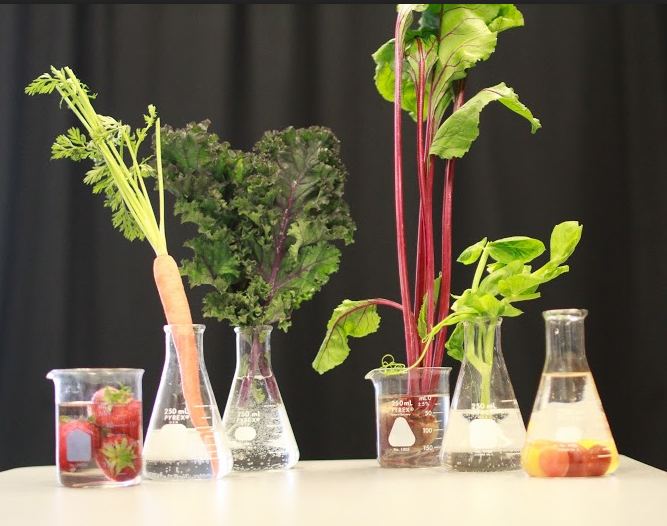Studying the impact of engineered foods
April 27, 2017
Prior to placing food into shopping carts, consumers often check the ingredient lists to see if any products contain genetically modified organisms (GMOs), plants or animals whose genetic makeup has been modified to produce more desirable traits. After scanning the list thoroughly, they make the final verdict on their purchase depending on their affinity for or aversion to GMOs. GMOs are often considered to increase nutritional value, help plants and animals become more tolerant of certain environments and reduce the number of resources needed to grow crops; they are also, however, known to lower resistance to antibiotics, increase food allergies and cause the migration of genes across species.
Genetic modification in crops dates as far back as ten thousand years ago, when crop domestication was made possible through selective breeding. Yet it was not until the 1990s that GMOs were introduced into the marketplace. GMOs have developed continually ever since, one reason being that they are environmentally friendly, thereby elevating the efficiency of crop growth. Such benefits allow farmers to grow food on less land and help them conserve natural resources. Another reason for their continued development is that genetically modified crops have been said to yield a higher nutritional value. For example, golden rice, a staple food in many Asian cultures, is currently being researched to combat vitamin A deficiency in developing Asian countries. Moreover, modified genes inserted into plants and animals have been claimed to strengthen both their resistance to disease and improve their health.
“I think GMO’s are seen considerably more in packaged and processed foods. The theory behind it is that we’re making these crops – let’s say corn or soy – more resistant to disease, bacteria and things that could impact the harvesting and processing of those ingredients,” said culinary teacher Megan Miller. “If scientists and farmers are able to make something less susceptible to disease, they’re going to end up with a higher yield, hardier product, make more money, etc. I believe that is one of the theories behind GMOs.”
Despite these advantages, GMOs can potentially have many unfavorable side effects as well. Gene transfer, the process in which genetically modified foods migrate to the human body or specifically to the gastrointestinal tract, is a reason of concern, as the transferred genetic material may adversely affect one’s health. A transfer of an antibiotic-resistant gene to a human, for instance, would be detrimental, as it reduces the efficacy of antibiotics used to counter disease. An additional downside to GMOs is that genetically modified crops are often sprayed with potent pesticides and herbicides. These chemicals then contaminate the environment by various means, whether it be traveling by air or finding their way into fresh water sources. Furthermore, proteins known to cause allergic reactions in humans may be present in GMOs, creating the possibility for a proliferation in food allergies.
Although studies such as the one conducted by the National Academies of Science, Engineering and Medicine indicate that GMOs have no additional impact on human health when compared to conventional foods, consumers are still wary of genetically modified products. Consumers argue that current studies have no way of determining the effect of GMOs in the long run. Additionally, scientists warn of superpests and superweeds, organisms that have evolved to resist commonly used pesticides and herbicides, developing as a result of GMO usage. This can result in a threat to the environment that cannot be controlled or eliminated.
“Although research may show that GMOs have no negative effects on humans, this does not change my views that GMOs are uncertain in the realm of safety,” said junior Yulee Jang. “This is because while researching, the researchers will have only looked for very specific defects, all in a relatively short time span. More research and time is needed to cement the claims. Also, in other animals very similar to humans, GMOs have led to health defects, so I am not sure that GMOs have absolutely no negative effects on humans.”
In a time where climate change endangers the security of food supply, resorting to GMOs may be advantageous, as they are able to make the food system more resilient and efficient. Yet it is also important to consider the downsides of GMOs, for they may present significant allergy risks, decrease the efficacy of antibiotics and result in unfavorable gene transfers.





























































